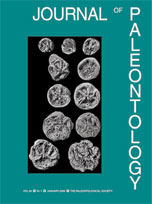Hexactinosidan sponges are important reef-building organisms in Earth history as they are able to create a three-dimensional reef framework and thereby form topographic relief comparable to that produced by scleractinian corals. Study of modern hexactinosidan sponge skeletons from water depths of 165–240 m on the continental shelf off British Columbia, Canada, demonstrate the hitherto undescribed frame-building process that leads to the formation of large and so far unique siliceous sponge reefs in this area. The fundamentals of the frame-building process are based on the production of siliceous envelopes around spicules of dead hexactinosidan sponges. In addition to the development of a three-dimensional reef framework, mound growth is supported by the current baffling effect of the sponges. Fine-grained siliciclastic suspended sediment is trapped and deposited within the gaps in the sponge skeletons and in voids in the reef surface preventing the framework from collapsing as the reef grows.
Analogous but tropical examples from the Lower Jurassic of Portugal show that the frame-building potential of hexactinosidan and other siliceous sponges has existed, substantially unchanged, for more than 180 million years. In contrast to well-known fossil mud mounds of various geologic ages, in which the in situ precipitation of automicrite via microbial processes plays a major role, the matrix of the hexactinosidan sponge mounds of British Columbia consists exclusively of baffled fine-grained siliciclastics; automicrite is absent. Existing mud mound classification schemes do not encompass these depositional characteristics, therefore this new type of mound is consequently here classified as a silicate mound.





